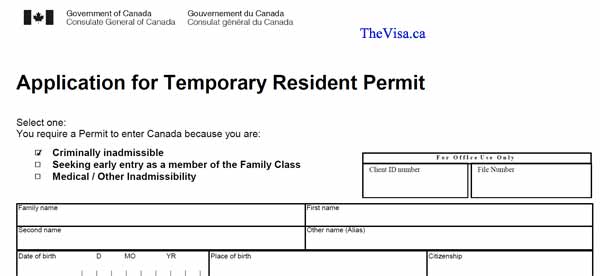Getting into Canada with a DUI after 10 Years
When traveling to Canada, at the border of the port of entry an officer may ask you if you have any convictions on your record. This is quite often a loaded question and the officer may already have some information that he or she is trying to confirm. Either way, you should always try to provide full disclosure in this sort of scenario. If you declare that you have no prior convictions on record and the officer then discovers that you do upon screening your file, you could be charged with attempting to illegally enter Canada and be barred from entry. Canada Border Services Agency officers now have access to more background information on Americans than ever before thanks to the Canadian Police Information Centre (CPIC) system. Upon screening a U.S. traveler to Canada, CPIC will often provide FBI, State level, and even county level criminal records. It is always in your best interests to be upfront with an officer about any convictions or arrests you have on record.

Driving Under the Influence (DUI) convictions are considered indictable offenses under Canadian law. This even includes lesser charges such as Reckless Driving or Wet Reckless. Misdemeanors under U.S. law such as Drug Possession, Lewdness, and Shoplifting also qualify as indictable offenses in Canada as well.
Many older travelers to Canada are often surprised when asked about a DUI arrest or conviction from 20 or 30 years ago. Many of us behaved recklessly in our youth and have since moved on in life. Unfortunately, those old charges can come back to haunt us. You may have had a clean criminal record for the last 30 years, but in the end, an officer has the final say on your entrance to Canada. It is important to be prepared for any questions or concerns that the officer may have about your past when you arrive at the border or port of entry. If you find yourself in this situation, you should consider the options discussed below.
Deemed Rehabilitation
Every decision that an officer makes when considering your entry into Canada is dictated by two documents: the Immigration and Refugee Protection Act (IRPA) and the Immigration and Refugee Protection Regulations (IRPR). This comes from Federal law in Canada and therefore applies to the whole country. Deemed Rehabilitation is outlined in Section 18 (2) (a) and (c) of the Regulations. According to this section, you may be Deemed Rehabilitated if you meet all of the following conditions:
You have no more than one offense on record outside Canada, and if that offense was committed in Canada, it would qualify as an indictable offense under an Act of Parliament.
At least 10 years have passed since the day when you completed all conditions of your sentencing.
You have not been convicted in Canada of an indictable offense under an Act or Parliament.
The offense is punishable in Canada by a maximum term of less than 10 years imprisonment.
The conviction must not be a serious violation in Canada (for example: hate crimes, assault with a weapon or causing bodily harm, extreme property damage)
Basically, if you have a single DUI charge on record, have completed all conditions of your sentencing over 10 years ago, and have no other convictions on record, you should be able to qualify for Deemed Rehabilitation. However, it is always best to be prepared and bring any documentation that shows the dates of completion of your sentencing, if possible. Sometimes the online databases may not have complete information available, especially for convictions that happened over a decade ago.
Criminal Rehabilitation is needed for entering Canada with a DUI after 10 Years
If you don't meet the conditions described for Deemed Rehabilitation above, then you will have to apply for Criminal Rehabilitation at a Canadian Consulate. To qualify for Criminal Rehabilitation, at least 5 years must have passed since the date when you completed all conditions of your sentencing. Documentation is required to prove that you qualify for rehabilitation. Some of the documents that you will need to provide to the Canadian Consulate include:
A completed Criminal Rehabilitation form (IMM 1444)
FBI and State Police Clearances
Documents that prove you complied with conditions of your sentencing (fines paid, probation served, license reinstated, etc.)
Employment details (employment letters, resume)
Character reference letters
Identification documents (passport, driver's license)
After submitting a complete application to the Canadian Consulate, it will take some time to process. The average processing times are often quoted as 6 to 12 months. However, there are no guarantees. Depending on the complexity of your application and the immigration officer reviewing the file, it could potentially take longer than a year.
Ultimately, if you end up with a successful Criminal Rehabilitation decision, then you are free to travel to Canada like any other U.S. citizen. It permanently removes the need for you to seek special permission to enter Canada.
Temporary Resident Permit (TRP) is also a solutions for Canada with a DUI after 10 Years
If you don't apply for Deemed Rehabilitation and are concerned about the processing times for a Criminal Rehabilitation application, you should consider applying for a Temporary Resident Permit (TRP). You can apply for a TRP even if 5 years have not passed since the completion of your sentencing. A TRP will allow those who have upcoming travel plans to Canada to obtain permission to visit. To qualify for a Temporary Resident Permit, the documentation required is the same as described in the Criminal Rehabilitation section above. The only difference is that you will be submitting a Temporary Resident Permit form instead of a Criminal Rehabilitation form.
Another advantage of applying for a TRP is that you can submit it at a Canadian Consulate, at a Port of Entry (airport, border), or both. It affords more flexibility for individuals with a DUI conviction on record who have more urgent travel plans.
Whatever option you decide to pursue, consider getting assistance from our team of Canadian immigration lawyers and consultants. Whether it be preparing a complete application, providing a consultation, or writing a legal letter to assist you with your entry to Canada, we are ready to help you. Let our experience and knowledge work for you!

